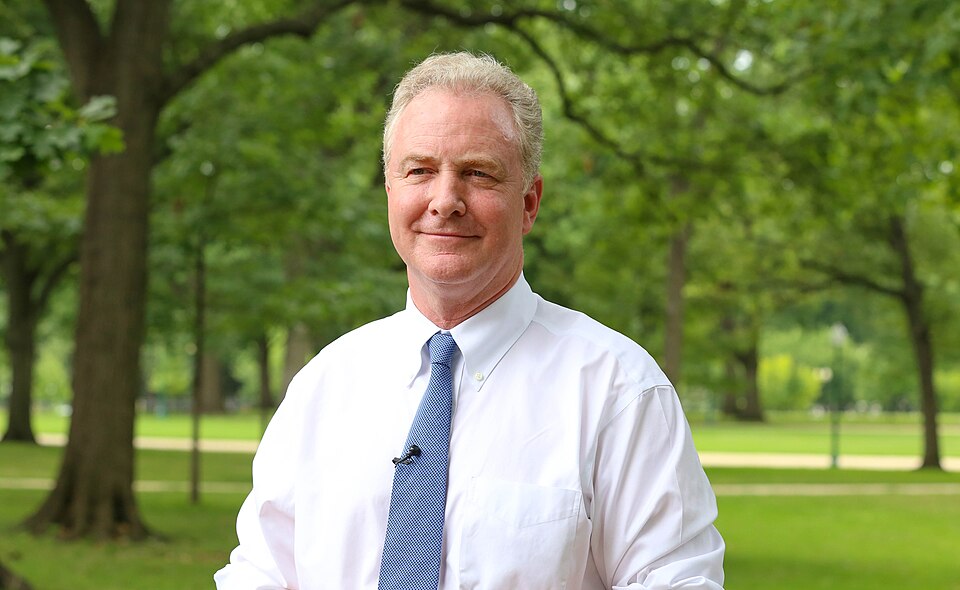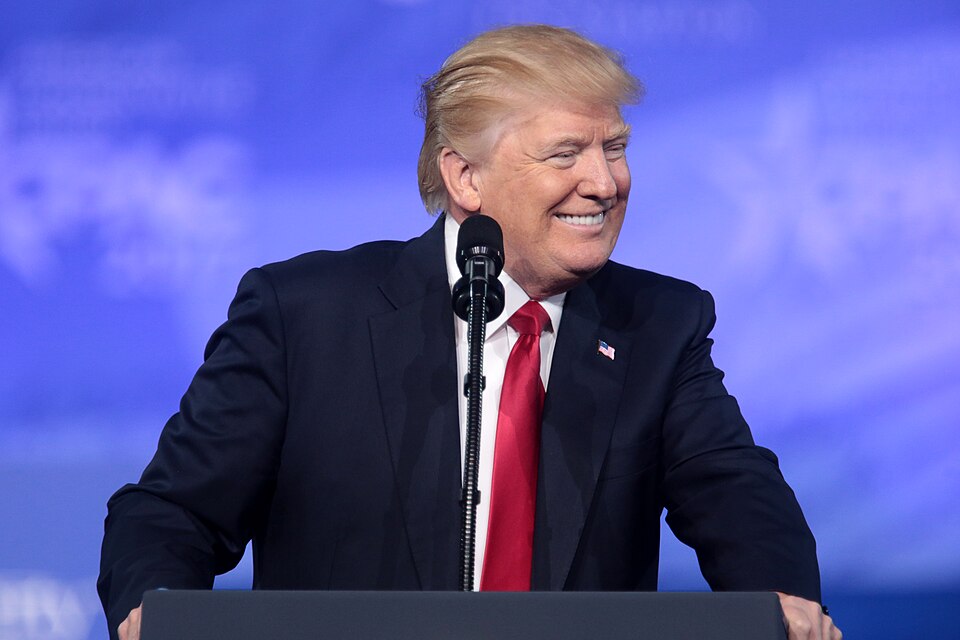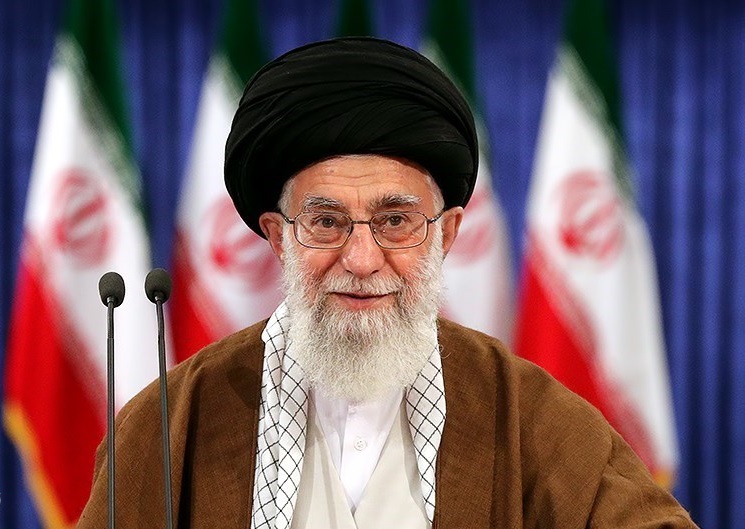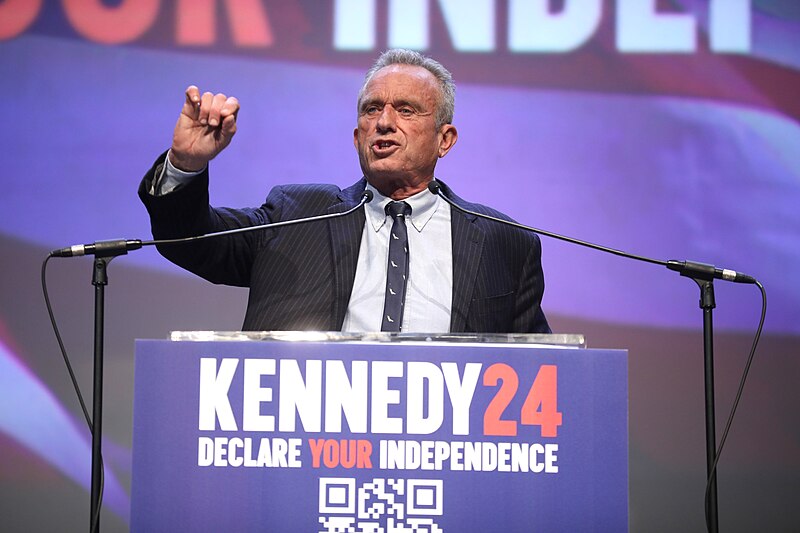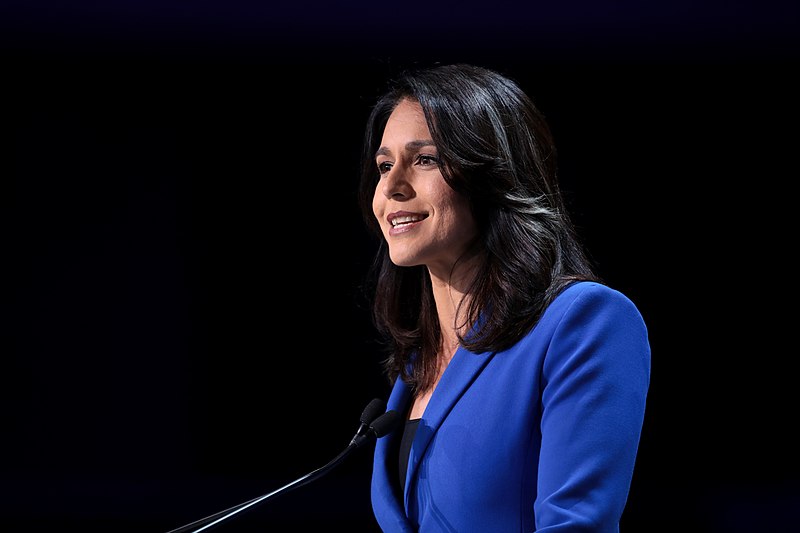
The U.S. Senate voted on Wednesday to confirm former Representative Tulsi Gabbard as the Director of National Intelligence (DNI), placing her at the helm of the nation's intelligence
apparatus. The 52-48 vote largely followed party lines, with Senator Mitch McConnell (R-Ky.) being the lone Republican to oppose her nomination, aligning with all Democrats in his dissent.
Gabbard’s Confirmation and GOP Dynamics
Gabbard's appointment marks a significant victory for former President Donald Trump, reinforcing his strong influence over the Republican Party. Despite initial reservations from some GOP senators, her confirmation underscores the party’s alignment with Trump’s policy agenda.
Upon Trump’s announcement of Gabbard’s nomination in November, critics—both Democratic and Republican—raised concerns about her foreign policy stances. These included her 2017 meeting with Syrian President Bashar al-Assad, her perceived sympathies toward Russia, and her past opposition to certain government surveillance programs, such as Section 702 of the Foreign Intelligence Surveillance Act (FISA). Additionally, her past advocacy for Edward Snowden, the former NSA contractor who exposed classified intelligence programs, drew scrutiny.
Shifting Positions and Confirmation Hearing
At her Senate Intelligence Committee confirmation hearing, Gabbard distanced herself from previous positions, stating she would neither advocate for Snowden’s pardon nor push for clemency. However, when pressed, she stopped short of labeling him a "traitor." She also modified her stance on Section 702, which she had previously criticized, calling it an "essential" tool after Congress approved additional safeguards.
McConnell, the only Republican senator to vote against Gabbard, issued a pointed rebuke following the vote, stating that she was unfit for the role due to “alarming lapses in judgment” regarding national security threats, including Russia, China, and intelligence policy.
“The Senate’s power of advice and consent is not optional,” McConnell said. “When a nominee’s record proves them unworthy of the highest public trust, the Senate should withhold its consent.”
GOP Support and Democratic Opposition
Senator Susan Collins (R-Maine), a moderate member of the Intelligence Committee who had initially expressed concerns about Gabbard, ultimately supported her nomination. Collins, who helped create the DNI role in 2004, said that after discussions with Gabbard, she was satisfied with her commitment to the agency’s mission.
Democrats, meanwhile, remained staunchly opposed. Senate Minority Leader Chuck Schumer (D-N.Y.) criticized Gabbard for what he called a history of promoting "falsities and conspiracy theories." He expressed doubts about her ability to take a firm stance against adversarial nations, citing her past comments on figures like Russian President Vladimir Putin and Assad.
“The director of national intelligence must be strong against America’s adversaries,” Schumer said. “But Ms. Gabbard has spent her entire career sympathizing with the likes of Vladimir Putin and Bashar Al-Assad.”
Gabbard’s Political Evolution and Role as DNI
Gabbard, 43, is a veteran of the Iraq War and has served in the Army Reserve for more than 20 years. A former Democratic congresswoman from Hawaii (2013-2021), she made an unsuccessful bid for the Democratic presidential nomination in 2020 before endorsing Joe Biden. However, she later became a vocal critic of the Biden administration, ultimately leaving the Democratic Party in 2022. In October 2023, she formally joined the Republican Party and endorsed Trump, even appearing alongside him on the campaign trail.
As DNI, Gabbard will oversee 18 intelligence agencies, including the CIA and NSA, and serve as the president’s principal intelligence adviser.
Senate Advances RFK Jr.'s Health Secretary Nomination
In a separate vote on Wednesday, the Senate advanced the nomination of Robert F. Kennedy Jr. for Secretary of Health and Human Services (HHS), another unconventional pick by Trump. The 53-47 vote, once again split along party lines, moves Kennedy closer to confirmation.
Kennedy, known for his past opposition to vaccines and support for abortion rights, faced skepticism from some Republican senators. However, during his confirmation hearing, he stated that he now acknowledges the "critical role" of vaccines in public health. When asked about abortion, he echoed Trump’s stance that "every abortion is a tragedy" and suggested that state governments should determine abortion laws.
Senator Bill Cassidy (R-La.), a physician and chair of the Senate Health, Education, Labor, and Pensions (HELP) Committee, was a key swing vote in Kennedy’s confirmation process. Cassidy announced his support after Kennedy and the Trump administration made several commitments, including maintaining vaccine programs and establishing regular communication between Kennedy and Congress.
Kennedy's confirmation vote is expected to take place by Thursday morning. Photo by Gage Skidmore from Peoria, AZ, United States of America, Wikimedia commons.


